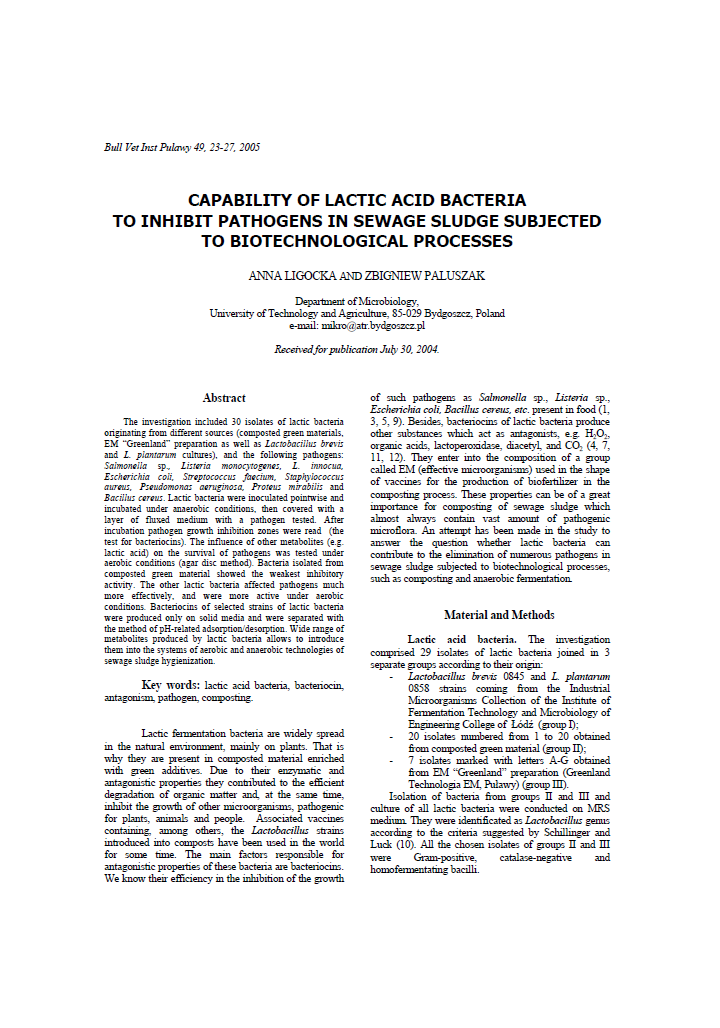Capability of lactic acid bacteria to inhibit pathogens in sewage sludge subject to biotechnological processes. Ligocka, A., Paluszak, Z. (2004)
The investigation included 30 isolates of lactic bacteria originating from different sources (composted green materials, EM “Greenland” preparation as well as Lactobacillus brevis and L. plantarum cultures), and the following pathogens: Salmonella sp., Listeria monocytogenes, L. innocua, Escherichia coli, Streptococcus faecium, Staphylococcus aureus, Pseudomonas aeruginosa, Proteus mirabilis and Bacillus cereus. Lactic bacteria were inoculated pointwise and incubated under anaerobic conditions, then covered with a layer of fluxed medium with a pathogen tested. After incubation pathogen growth inhibition zones were read (the test for bacteriocins). The influence of other metabolites (e.g. lactic acid) on the survival of pathogens was tested under aerobic conditions (agar disc method). Bacteria isolated from composted green material showed the weakest inhibitory activity. The other lactic bacteria affected pathogens much more effectively, and were more active under aerobic conditions. Bacteriocins of selected strains of lactic bacteria were produced only on solid media and were separated with the method of pH-related adsorption/desorption. Wide range of metabolites produced by lactic bacteria allows to introduce them into the systems of aerobic and anaerobic technologies of sewage sludge hygienization.
Bibliographic information
Ligocka, A., Paluszak, Z. (2004). Capability of lactic acid bacteria to inhibit pathogens in sewage sludge subject to biotechnological processes. University of Technology and Agriculture, Bydgoszcz, Poland.
Filter / Tags
English

